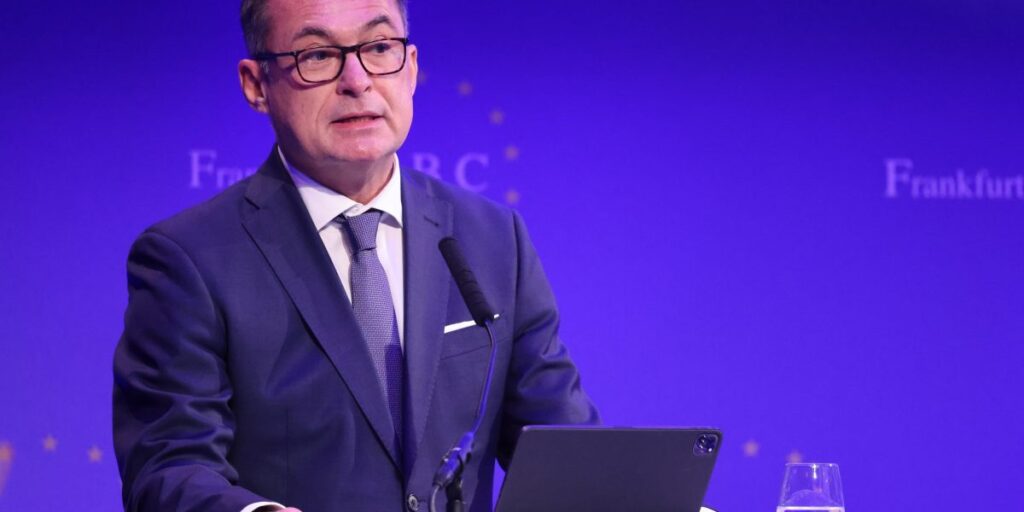
Germany provided a rare blowback to the rest of Europe as falling output, falling exports and weakening consumer confidence hobbled the continent’s largest economy.
Now one of the country’s biggest politicians is tired of his sick image.
The head of the country’s central bank has been put on the defensive as analysts worry about the country, which is likely to struggle with a recession until the end of the year, and he takes issue with the particularly unflattering title.
“They always talk about Germany being a ‘sick man,'” Bundesbank President Joachim Nagel told an audience on Wednesday. Bloomberg.
“I’m more worried that Europe will get sick if we don’t finally start doing our homework.”
Bloomberg reported that Nagel was referring to European bureaucracy and higher taxes across the continent, seeking to distract from problems in his own economy.
sick man of Europe
Since reunification in the 1990s, massive industrial growth has shaken Germany’s title as the “sick man of Europe” and Germany is once again tainted by that unfortunate moniker, and for good reason.
Germany is paying the price for its past dependence on cheap Russian oil and gas, which was all but destroyed by mutual sanctions after Vladimir Putin’s invasion of Ukraine.
Supply chain disruptions have been slow to resolve while the country also digests the fallout from falling demand from its key trading partner, China.
The country’s economy largely stagnated before falling into decline last year, recording negative GDP growth -0.3% in 2023.
Analysts believe Germany is now expected to enter a technical recession, defined as two consecutive quarters of negative economic growth.
Germany Purchasing Managers Index The PMI, which measures the country’s manufacturing and services output, has been declining for the better part of two years.
“Germany is not getting back on track,” suggested Dr Cyrus de la Rubia, chief economist at the Hamburg Commercial Bank, following the country’s latest PMI figures.
In September, Deutsche Bank CEO Christian Sewing suggested that Germany would again become Europe’s sick man unless it addressed several structural problems, including a skilled labor shortage and aging rail networks. He also shared Nagel’s frustration with bureaucracy.
“We will become the sick man of Europe if we don’t address these structural problems now,” Sewing said at last year’s Handelsblatt banking summit. “Something needs to change here urgently.”
But the Bundesbank’s Nagel is right when he points out the problems facing Europe itself.
Economy of the EU and Eurozone grew up pathetic The rate was 0.5% last year, a fifth of the 2023 U.S. growth of 2.5%.
The continent’s latest PMI reading was slightly positive in March, but still showed there was a long way to go before significant GDP gains were realized.
Eurozone policymakers have been cautious about cutting interest rates before inflation is proven to be under control, which could also dampen economic growth.
“Much will depend on the consumer gradually regaining purchasing power as real wage growth is now positive,” said Bert Colijn, ING’s senior eurozone economist.
“With cautious rate cuts expected, the investment environment should also gradually become more attractive again. But as today’s PMI shows, the economy remains weak for now.
In the long term, weak demographic trends are coupled with a lag in innovation on the continent since the turn of the century, Clemens Fuest, president of Germany’s Ifo Institute, said on Thursday. Bloomberg reported.
“Over the past two decades, Europe has lagged behind the United States economically and technologically due to a lack of economic momentum and innovation.”
“It’s time to stop this trend.”


